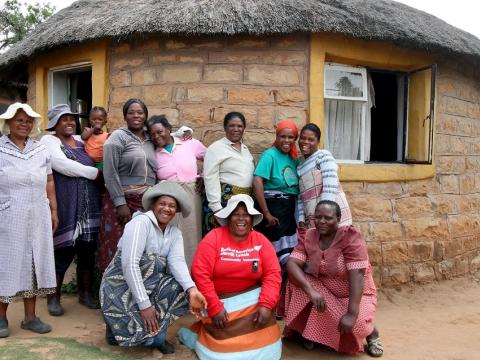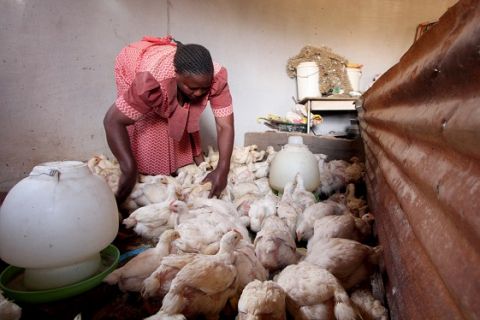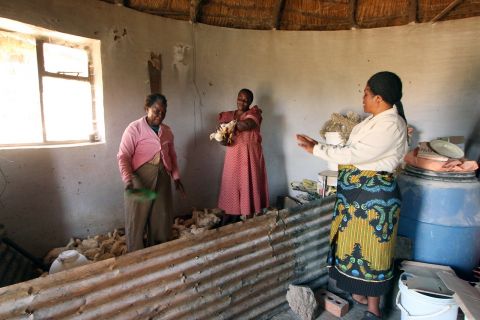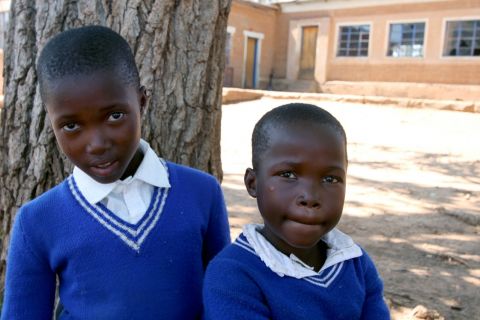Lesotho's women don't just raise poultry; they also spread hope and care for children at-risk

It started as a savings group that grew into an income-generating venture through a poultry project. Now, it is not only making profit for its members but provides care for children at-risk. The group does not just send their children to school, but also extends a helping a hand to other children in their community. As the country continually confronts an increasing number of orphaned and vulnerable children, care and protection is urgent. Most are at risk of dropping out of school and subsequently exposed to abuse and exploitation.
Nine-year old Tsepang, an orphan in Kota Area Programme located north of Lesotho has just come back from school. She washes the dishes because no one did in the morning when they had to rush to school. She stays with her younger sibling, Lebohang, 7 and they both attend school at Makokoane primary school. To be able to eat, the two orphans depend entirely on the kindness of their neighbors.

“Our neighbors call us to go and eat or bring us something at home. Sometimes we would spend three weeks eating only in the evening. They normally ask us what we are cooking and if we say nothing, then they invite us in their homes. If they come, they bring us mealie-meal, potatoes and some vegetables. I am thankful of their presence in our lives”, says Tsepang. The women who normally visit them are members of World Vision-initiated poultry project that started as a savings group that raise funds to help the orphaned and the vulnerable.
“As a group we realized the sadness that was always on these children’s faces and decided to visit them. We were trying to find out how they were coping, what they eat before they go to school and to see whether they were dressed like other children. Then we realized we needed to support them out of the small profits we are making from selling the chicken”, says Mapoulo. The poultry project association called “Ruta Ngoana” literally translated as “Teach a child”.
The association currently owns close to 400 chicken that they sell $8 each in the market. “When the proceeds are good, we collect close to $2500 a year which we divide amongst ourselves as members. We each use the money to pay school fees for our children and buy our household needs such as food, soap and Vaseline for the orphans”, Mapoulo adds.

She goes on to share that their dream is to grow their association and engage in piggery, because they wanted to help more orphans. “This project has taught us that if we work together in love, we can overcome a lot of life challenges. We want to thank World Vision for supporting us in ensuring that this project becomes a success”, she says.
The project started in 2014 and the El-Nino induced drought that befell Lesotho in 2015 led to a loss of many chicken but that did not deter them from continuing with the project. During the drought, they had to draw water from afar using their animals as means of transport. It was difficult for the women but they wanted to see the project survive.
“We thank God for the strength to continue despite the challenges. If all goes well, we want to venture into piggery and find more ways to expand the project, Mapoulo says full of hope. There are currently close to 350,000 orphaned and vulnerable children in Lesotho. Majority either stay with the elderly or by themselves just like Ts’epang and Lebohang. These Lesotho women are spreading hope and love for the country’s future generation.
 P
P
Photos by Christopher Lete and Eugene Combo/World Vision
